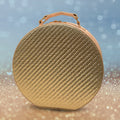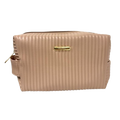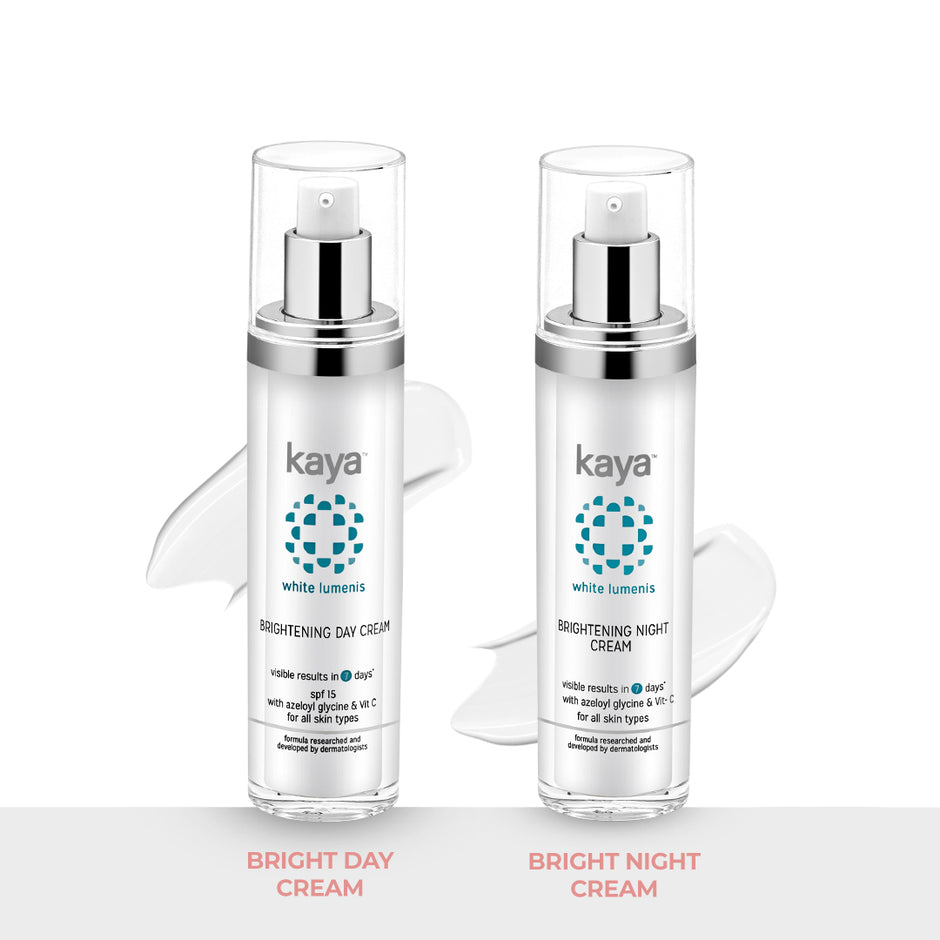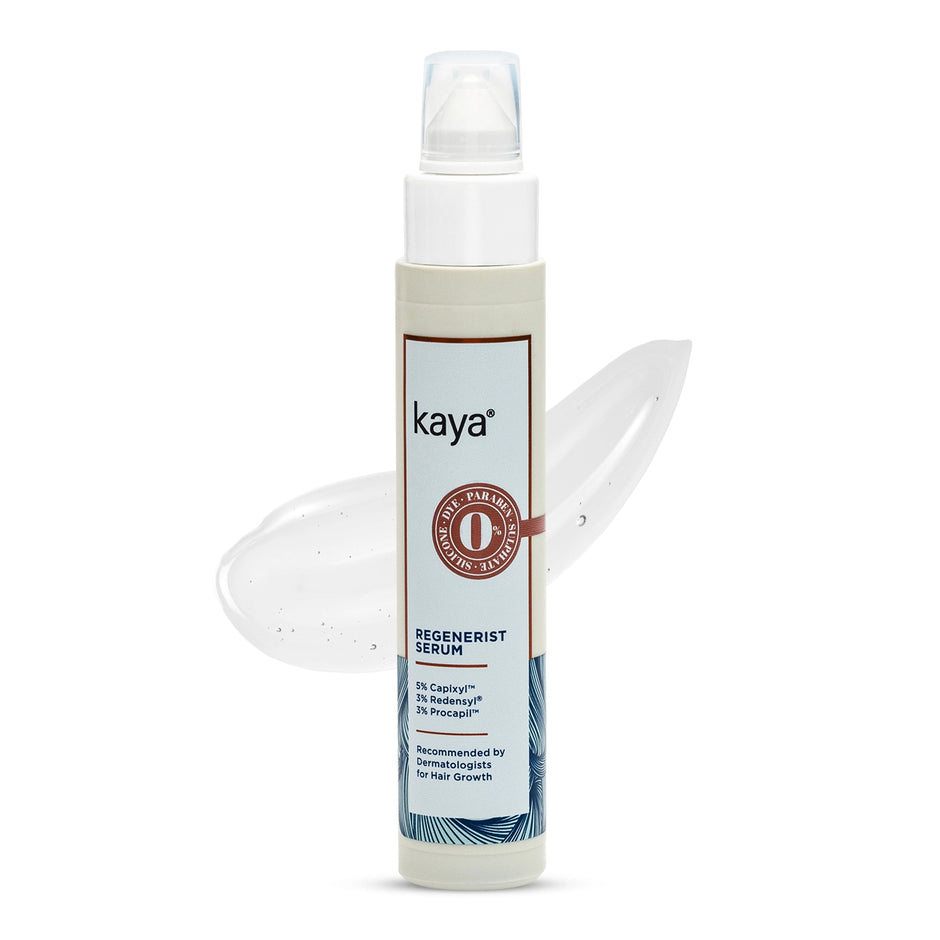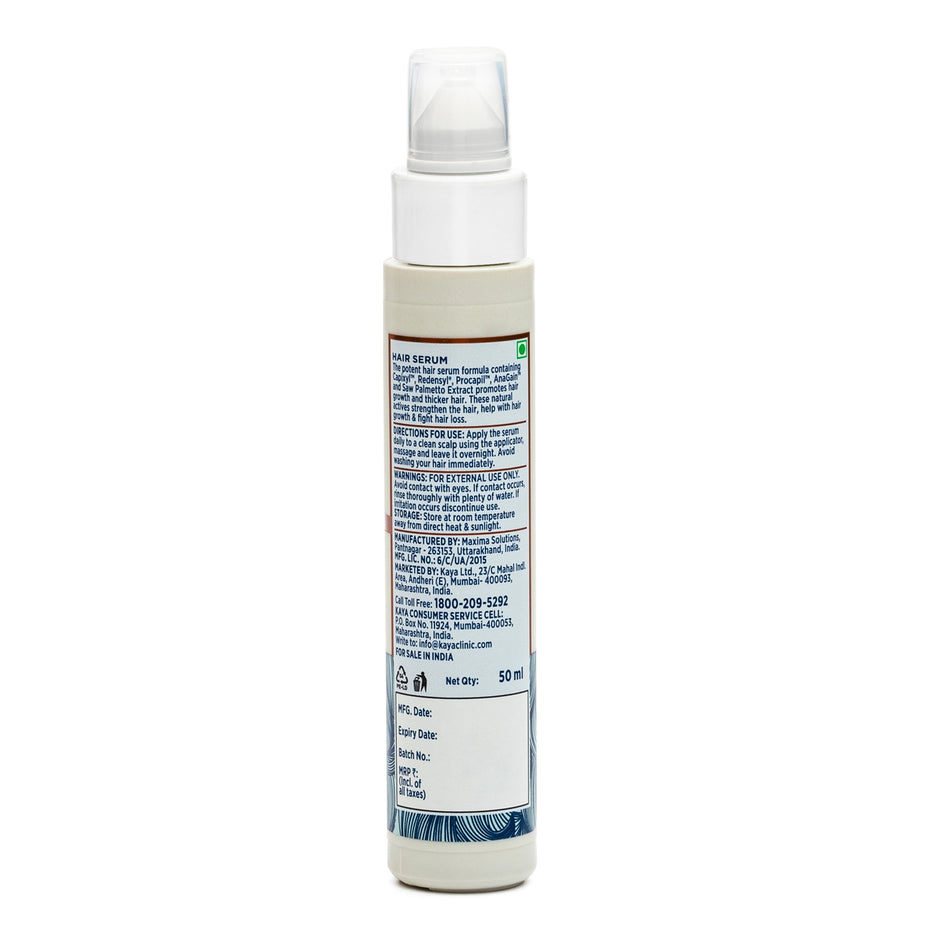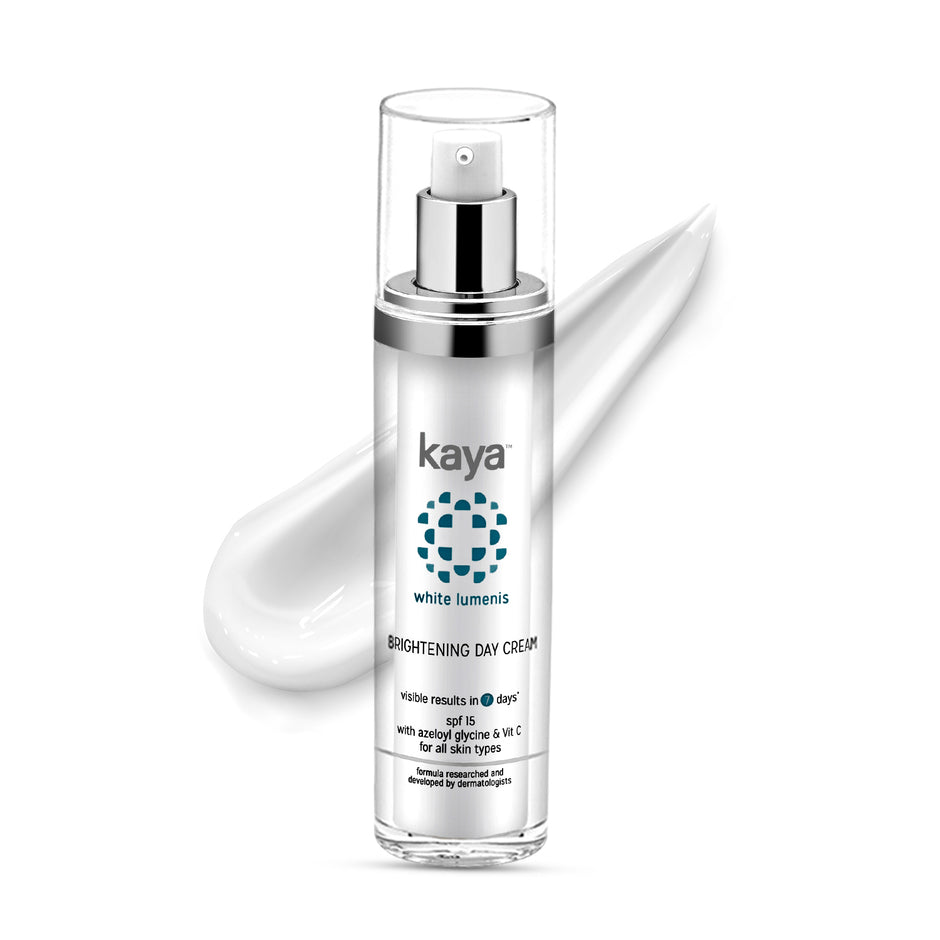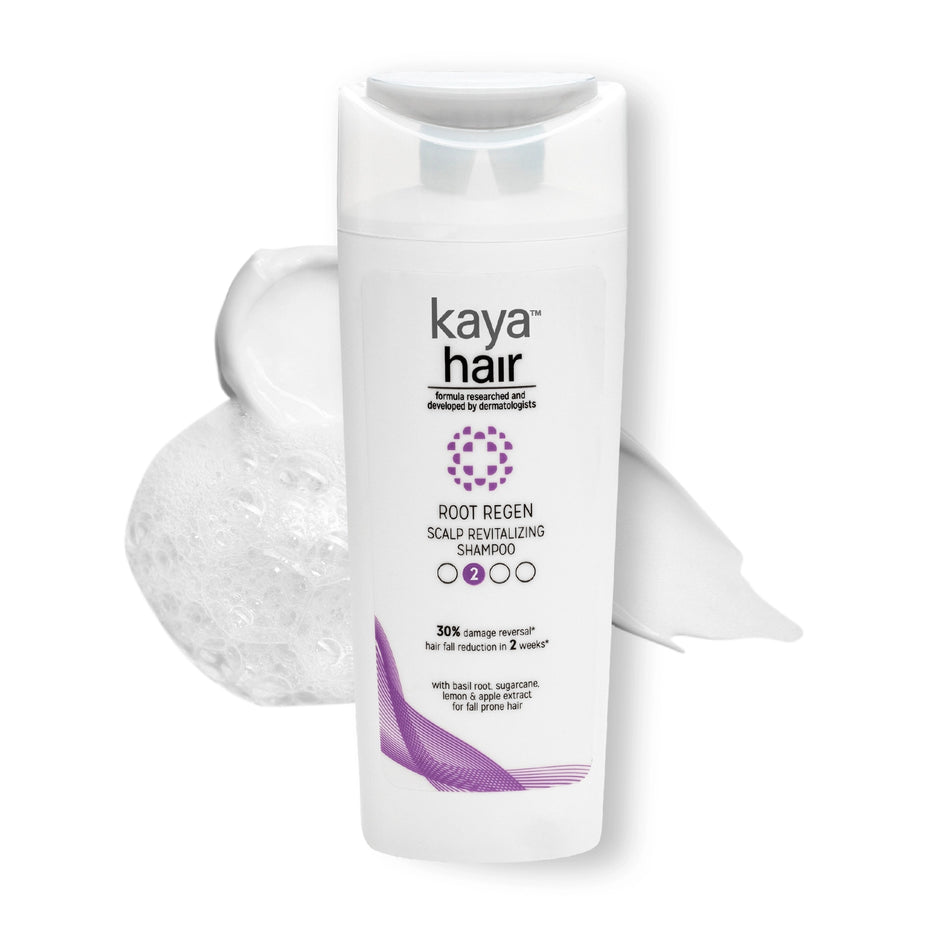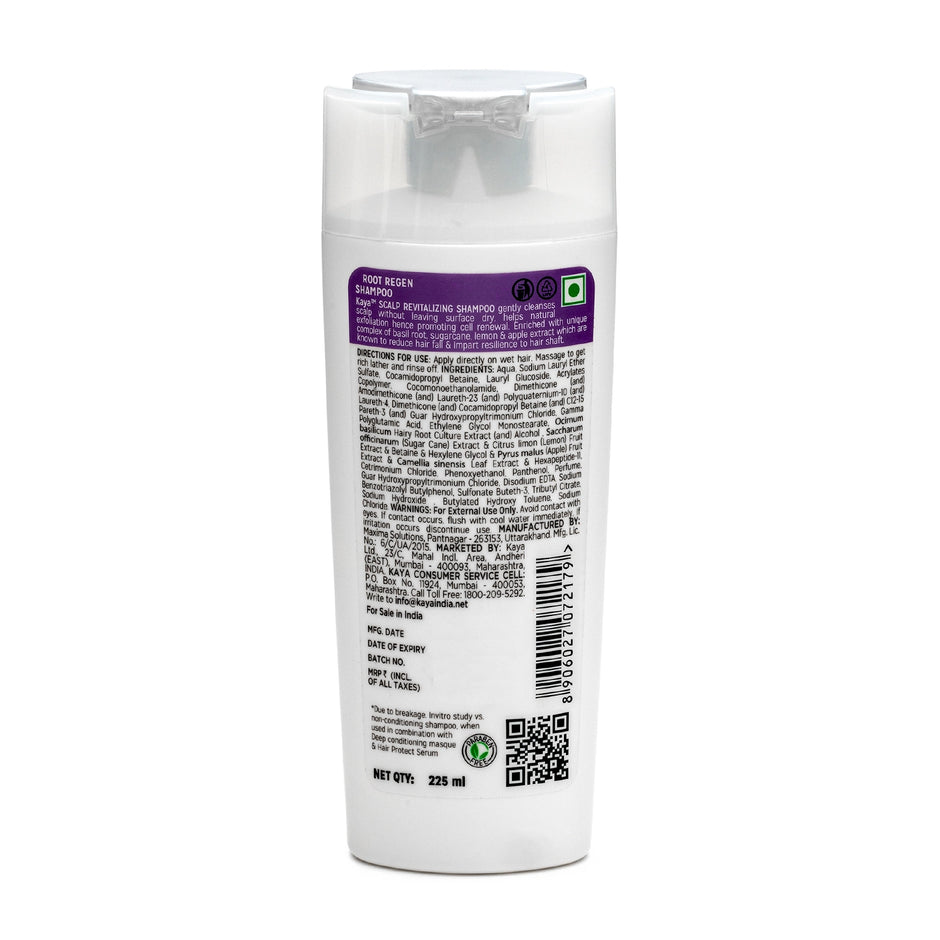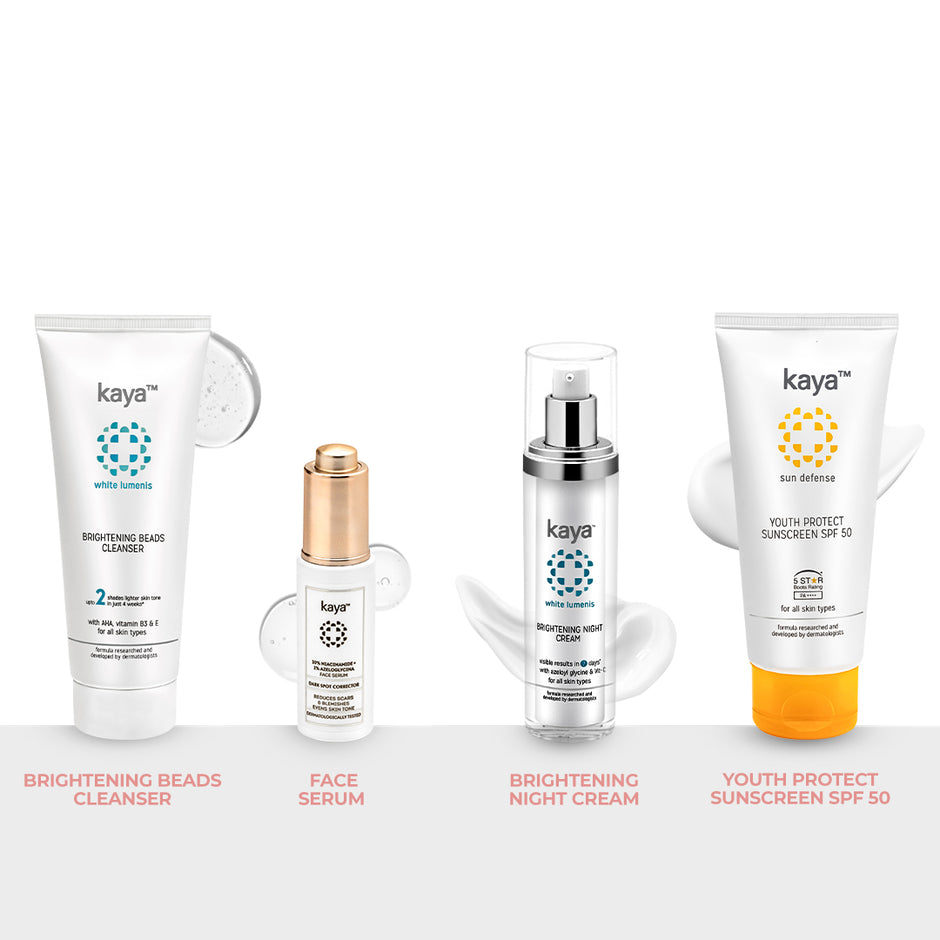Let’s explore how aging affects your skin, how to create an effective anti-aging routine, and which products deliver the best results.
What is Skin Aging?
Skin aging is the natural process through which your skin undergoes changes as you grow older. It’s influenced by two primary factors: intrinsic aging, which occurs internally, and extrinsic aging, caused by external elements.
Intrinsic aging is a biological process tied to time. As we age, the body produces less collagen and elastin. Cell turnover slows, moisture retention decreases, and oil production diminishes.
Extrinsic aging happens due to environmental factors like sun exposure, pollution, and lifestyle choices. These elements accelerate the breakdown of collagen and elastin, resulting in wrinkles, sagging, and uneven pigmentation.
Common Causes of Premature Aging
Natural aging is inevitable, but premature aging is often triggered by
-
Sun Exposure: UV rays accelerate collagen and elastin breakdown, causing wrinkles and age spots.
-
Dehydration: Lack of moisture retention leads to dryness and fine lines.
-
Pollution: Free radicals from pollutants damage skin cells and speed up aging.
-
Lifestyle Factors: Smoking, poor diet, stress, and lack of sleep can trigger early aging.
That’s why using anti-aging skincare products is essential—to protect and repair your skin from external stressors.
Why You Need Anti-Aging Skincare
Anti-aging skincare helps fight both intrinsic and extrinsic aging. Products with ingredients like retinol, hyaluronic acid, and peptides work to boost collagen production, improve skin elasticity, and restore moisture. Regular use helps reduce fine lines, wrinkles, and dullness, keeping your skin firmer and smoother over time. It’s an investment in long-term skin health and resilience.
How Skin Aging Affects Different Skin Types
-
Oily Skin: Fine lines may appear later but enlarged pores and loss of firmness become more prominent.
-
Dry Skin: Prone to early wrinkling and rough texture due to a lack of moisture retention.
-
Combination Skin: May experience dryness and oiliness, leading to uneven texture and tone.
-
Sensitive Skin: Redness, irritation, and inflammation can worsen with age due to a weakened skin barrier.
Understanding your skin type allows you to choose the best anti-aging skincare products that address your specific concerns.
Tips for Choosing the Best Anti-Aging Skin Care Products
Your skin’s needs evolve over time, so using anti-aging products tailored to your specific concerns ensures better results and long-term skin health.
Here’s a detailed guide based on your age and skin type:
In Your 20s: Prevention and Protection
At this stage, your skincare routine should focus on maintaining skin health and preventing early signs of aging.
-
Oily Skin: Use a lightweight gel-based moisturizer and a broad-spectrum sunscreen to control oil and protect from UV damage.
-
Dry Skin: Opt for a hydrating cleanser and a vitamin C serum to boost moisture and brighten skin.
-
Combination Skin: A balancing toner and gel-based sunscreen help regulate oil and maintain hydration.
-
Sensitive Skin: Use a gentle, fragrance-free cleanser and a mineral sunscreen to avoid irritation.
Recommended Product: Youth Protect Sunscreen SPF 50 – Daily sun protection is crucial in your 20s to prevent early signs of aging.
In Your 30s: Boost Collagen and Address Fine Lines
Collagen production starts to decline in your 30s, so the goal is to boost skin firmness and address early fine lines.
-
Oily Skin: Introduce a retinol serum to improve texture and a lightweight moisturizer with niacinamide to regulate oil.
-
Dry Skin: Use a peptide-rich night cream and a vitamin C serum to enhance radiance and firmness.
-
Combination Skin: A lightweight serum with hyaluronic acid and a gel sunscreen balance oil and dryness.
-
Sensitive Skin: Start with low-strength retinol and use a calming cream with Centella asiatica.
Recommended Product: Collagen Boost Serum – Boosts collagen production and improves skin texture, essential for your 30s.
In Your 40s: Repair and Rejuvenate
Skin in your 40s may show deeper wrinkles, loss of elasticity, and dryness. The focus should be on hydration, repair, and increasing skin turnover.
-
Oily Skin: A retinol serum and a mattifying moisturizer with hyaluronic acid improve firmness without clogging pores.
-
Dry Skin: Use a rich cream with ceramides and a nourishing night mask with vitamin E for deep hydration.
-
Combination Skin: A peptide-based serum and a balancing moisturizer address both dryness and oiliness.
-
Sensitive Skin: Opt for bakuchiol instead of retinol and use a barrier-strengthening cream with ceramides.
Recommended Product: Dramatic Renew Day Cream – Helps to restore moisture and strengthen the skin barrier, reducing wrinkles and dryness.
In Your 50s and Beyond: Intense Hydration and Firming
As hormone levels decline, skin becomes thinner and more prone to dryness and sagging. Products with deep hydration and firming ingredients are essential.
-
Oily Skin: Retinol and a lightweight cream with hyaluronic acid improve texture and elasticity without heaviness.
-
Dry Skin: Use a rich moisturizer with squalane and an overnight mask with vitamin E for deep nourishment.
-
Combination Skin: A collagen-boosting serum and a lightweight sunscreen balance moisture level.
-
Sensitive Skin: Focus on barrier repair with ceramide-rich creams and use bakuchiol for gentle firming.
Recommended Product: Replenishing Night Cream – Deeply nourishes and repairs the skin overnight, essential for mature skin.
No matter your age or skin type, sunscreen remains the most effective anti-aging product. Daily use of broad-spectrum SPF 30+ prevents sun damage and preserves youthful skin.
When Should You Start Using Anti-Aging Products?
It’s never too early to start! Experts recommend incorporating anti-aging products into your routine as early as your mid-20s, when collagen production starts to slow down.
Best Practices for Maximum Results
-
Start Slow: Introduce one product at a time to avoid skin sensitivity.
-
Use Products Consistently: Visible results take time—be patient and stick to a regular routine.
-
Layer Correctly: Apply products in the right order to maximize absorption and effectiveness.
Skincare Routine for Aging Skin
Following a well-structured anti-aging skincare routine ensures your skin gets the right care at every step.
Here’s the correct order of application:
Step 1: Cleanse
Start with a gentle, hydrating cleanser to remove impurities without stripping natural oils.
Step 2: Tone
A toner with niacinamide or hyaluronic acid helps balance pH levels and prepare your skin for treatment.
Step 3: Repair
Apply a face serum with retinol, vitamin C, or peptides to target fine lines and improve skin texture.
Step 4: Moisturize
Use a rich, nourishing moisturizer to lock in hydration and strengthen the skin barrier.
Step 5: Treat
Apply an eye cream with caffeine or peptides to reduce puffiness and fine lines.
Step 6: Rejuvenate
Finish with a night cream enriched with antioxidants and hyaluronic acid to support overnight skin renewal.
Best Anti-Aging Skincare Ingredient Combinations:
-
Retinol + Hyaluronic Acid: Enhances hydration while reducing fine lines.
-
Vitamin C + Sunscreen: Protects against UV damage and boosts radiance.
-
Peptides + Ceramides: Strengthens the skin barrier and improves firmness.
Do’s & Don'ts of Anti-Aging Skincare
Achieving youthful, healthy skin isn’t just about using the right products—it’s also about following the right practices consistently. Here’s a balanced guide to help you maximize the benefits of your anti-aging skincare products while avoiding common mistakes:
Do’s:
-
Use Sunscreen Daily: UV rays accelerate collagen breakdown and cause wrinkles. Apply a broad-spectrum SPF 30+ every morning.
-
Introduce Retinol Gradually: Start with a low concentration (0.25%–0.5%) to boost collagen and improve texture without irritation.
-
Layer Products Correctly: Follow the order—cleanser → toner → serum → moisturizer → eye cream → sunscreen (AM) or night cream (PM)—for maximum absorption and effectiveness.
-
Hydrate Inside and Out: Use a hydrating serum and drink enough water to keep your skin plump and radiant.
Don’ts:
-
Skip Sunscreen: Unprotected sun exposure leads to wrinkles, sunspots, and uneven skin tone.
-
Over-Exfoliate: Exfoliating more than 2–3 times a week can weaken the skin barrier and cause redness.
-
Mix Too Many Actives: Combining retinol, vitamin C, and acids can irritate your skin—introduce them gradually.
-
Neglect Your Neck and Hands: Extend your skincare routine to these areas to prevent early signs of aging.
Ready to upgrade your skincare routine? Explore Kaya's expertly formulated anti-aging products and give your skin the care it deserves. Shop Now for radiant, youthful skin!
FAQs about Anti-Aging Products
1. Can anti-aging creams reduce wrinkles?
Yes, creams with retinol and peptides boost collagen and reduce wrinkles over time.
2. How long to see results from anti-aging products?
Visible results usually appear in 4–8 weeks with consistent use.
3. Which anti-aging products should beginners start with?
Start with a cleanser, collagen-boosting serum, moisturizer, and sunscreen.
4. Can I combine multiple anti-aging products?
Yes but avoid mixing strong actives like retinol and vitamin C together. Follow the correct order of application.

